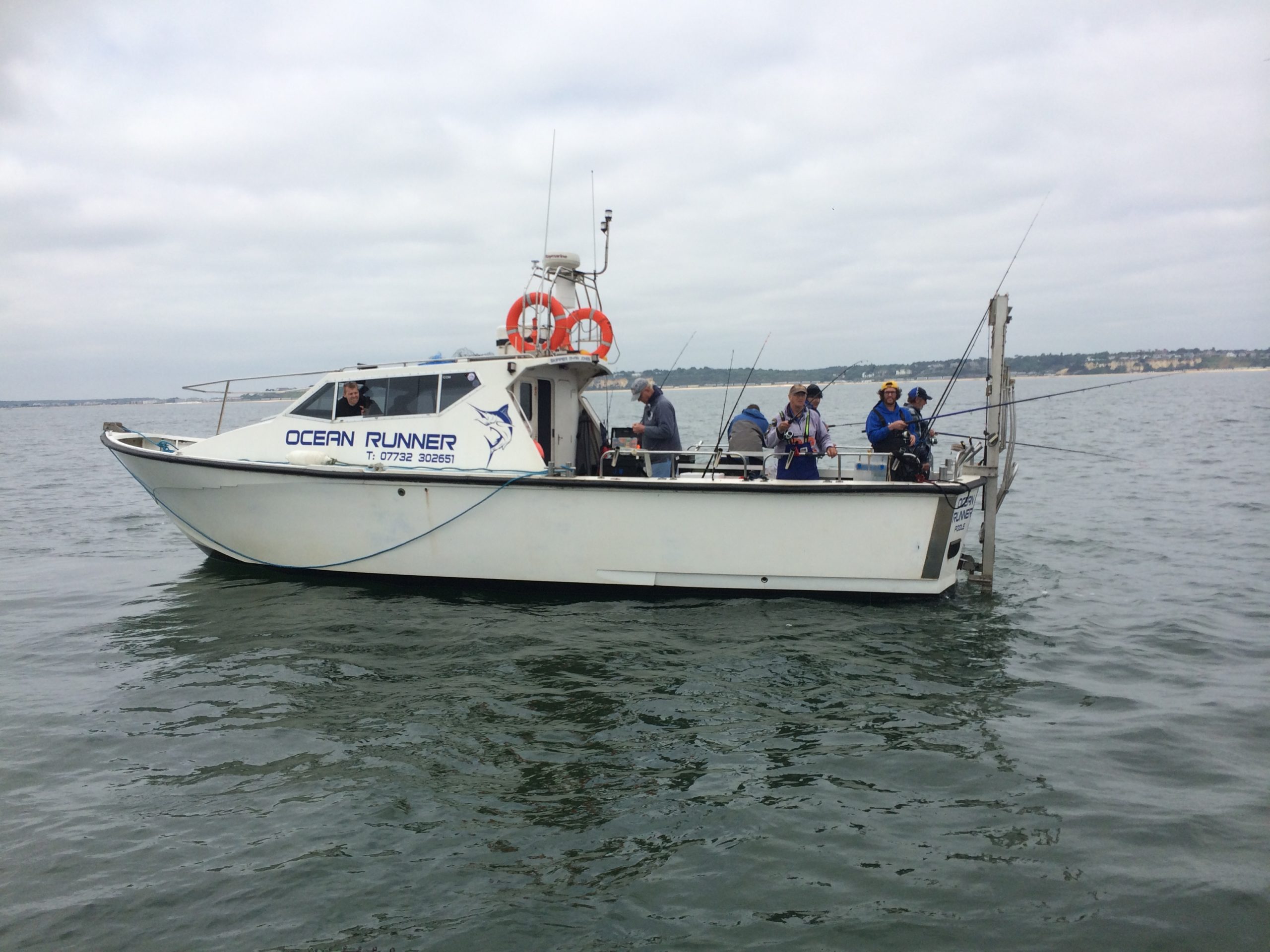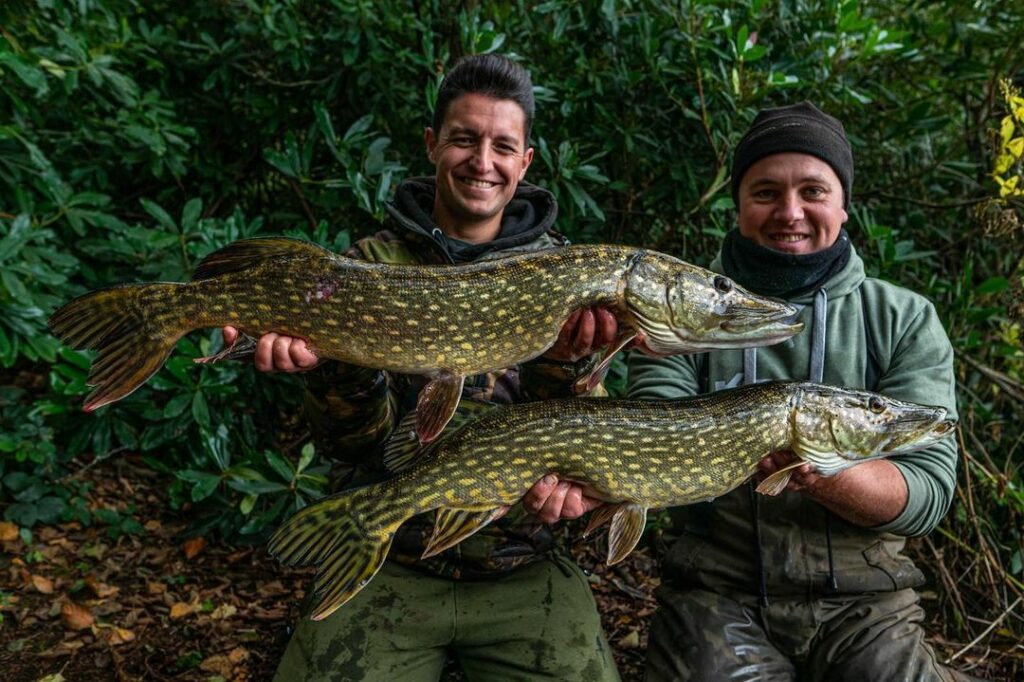Bluefin Tuna
Since 2015 huge Atlantic Bluefin Tuna have appeared late each summer in UK waters. A global stock recovery program has seen numbers recover sharply from danger levels ten years ago. From Dorset, Devon and Cornwall, the waters off SW Wales, to the Outer Hebrides and beyond, these unique fish are now present in unprecedented numbers. Dozens of fish up to 700lb have been hooked accidentally by anglers and safely released.
Until the 1950s the UK had a thriving and highly valuable recreational Bluefin Tuna fishery operating out of Whitby and Scarborough under the auspices of the Tunny Club. These fish disappeared completely from the far NE Atlantic by the early 1960’s. A combination of long-term climatic cycle shifts, and commercial overfishing of their prey species are thought to be the main reasons for this decline. Commercial overfishing globally of Bluefin became a real issue in the years following this.
For decades following their departure, UK and international anglers were required to pursue this king of sporting big game fish elsewhere, spending small fortune travelling to far flung locations.
Those long term climatic cycles have since around 2000 been shifting back into a ‘warm phase’, and perhaps aided by a marked recovery in stocks over the last ten years, Atlantic Bluefin are once again regular seasonal visitors to the waters of the far NE Atlantic, including the UK.
There now exists a real opportunity to establish a world-class, sustainable, valuable live-release recreational fishery in our waters. In conjunction with a parallel scientific research program, this would not only contribute significantly to our knowledge of these tremendous fish but would bring substantial economic benefits to often hard pressed coastal communities dependent upon tourism.
Background
By the early 2000’s, Atlantic Bluefin stocks were collapsing due to decades of commercial overfishing. In 2007 the International Commission for the Conservation of Atlantic Tunas (ICCAT) finally took action with a 15-year recovery program that slashed quotas and ramped up enforcement. Stocks recovered and quotas were gradually increased from 2014 and have risen to 38,350 tonnes in 2020, nearly three times the ‘recovery’ level of 2011.
This recovery has been repeatedly documented in comprehensive ICCAT stock assessments, is acknowledged by conservation bodies such as the WWF, and is reflected in the IUCN’s improved status granted for the large (90%+ of the total) Eastern Atlantic/Mediterranean stock in 2015.
In 2010, the IUCN rated Atlantic Bluefin globally as ‘endangered’. As early as 2015 this was improved by 2 notches to ‘Near Threatened’ for that crucial 90%+ of the stock.
In the autumn of 2020 the IUCN are reviewing the Global stock again and the ‘endangered’ status will once in all likelihood be comprehensively consigned to history. The recovery in Atlantic Bluefin is a genuine conservation success story, with the caveat that the precise extent of the recovery is subject to some uncertainty given gaps that still remain in some of the data available.
So can the UK fish for them?
Currently. No.
ICCAT rules dictate that only member states with a quota may authorize sports or recreational fishing. In common with Ireland, Denmark and Sweden the UK has no share of this EU quota and is therefore unable to fish for them either commercially or recreationally outside of very specific ICCAT sanctioned research programs. This is something practiced by those three nations, but for reasons unknown has been resisted by DEFRA, leaving the UK as an outlier.
The ‘big prize’ in any case is of much greater value long term…..
A Brexit Opportunity
Having left the EU, the UK is set to join ICCAT as a standalone sovereign member within months. This will allow us to request a share of the global quota for ourselves. This is something that the UK Government has indicated it is actively exploring.
The UK would have discretion as to how to apply that quota. It is our view that a portion of that quota should be allocated as a priority to allow the establishment of a Recreational Live-Release Bluefin Tuna fishery in UK waters.
Such a UK fishery could, through a parallel research program including tagging of fish captured by anglers, contribute significantly to existing science based research aimed at increasing our knowledge of this incredible and highly mobile species. Use of the recreational angling sector to help execute such program is a commonly used strategy in dozens of ICCAT members.
The establishment of a licensed and monitored live-release tuna fishery, (as required under ICCAT regulations) would provide a significant boost to local economies in Cornwall, West Wales, Northern Ireland and the North West of Scotland.
This presents a once in a generation opportunity to “do the right thing” and establish a sustainable, economically optimal, scientifically important fishery for Atlantic bluefin tuna.
A Great Sporting Opportunity
Atlantic Bluefin Tuna are an iconic sporting fish. Growing to over 1,500lb and with great strength, speed and stamina, they are one of the most sought after gamefish on the planet.
A substantial bluefin tuna live-release fishery exists in Canada, where studies show that its economic value of is six times per tonne that of a traditional commercial fishery.
A study of this fishery in 2012 estimated that recreational charter revenues alone created a value of $100,000 per tonne versus the landed value from commercial fishermen of $17,000. This was before additional revenue generation related to the charter industry was assessed, i.e. hotels, restaurants, fuel, bait, tackle etc.
Our Proposal
Rather than repeating the outdated and economically suboptimal policy approach of prioritising commercial fishing interests over recreational, the establishment of a live-release recreational fishery represents the best way of ensuring a future that works best for the fish, the science, and the local communities.
We are proposing the establishment of a recreational fishery that complies with stringent ICCAT requirements regarding authorisations, reporting and monitoring. Controls on the tackle employed would help ensure the best fish welfare conditions in order to limit mortality, although this remains remarkably low at less than 5% as illustrated in multiple studies and established live-release fisheries.
This fishery would set a new benchmark in sustainable management of the species. It would be one of the most forward thinking in the world, putting the interests of the fish at its heart and contributing to the government’s ambition in its 25 Year Environment Plan for the UK to develop world leading fisheries management post-Brexit.
We envisage an accompanying scientific program of reporting, tagging, and DNA sampling that could contribute greatly to our further knowledge of Atlantic bluefin tuna stocks and the drivers for their renewed presence in the UK.
Some argue that we should ‘do nothing’, or establish a ‘safe haven’ for Bluefin in UK waters.
Both of these are misguided.
‘Doing nothing’ misses an opportunity to set a new benchmark in the sustainable management of Bluefin, add to our knowledge and understanding of the species and betrays hard pressed coastal communities who could see real economic benefits as stakeholders in such a fishery.
A ‘safe haven’ is wishful thinking. Atlantic Bluefin are a highly migratory species fished for under a global quota system that sees dozens of nations targeting these same fish on their way to and from UK waters. The key is to ensure the TOTAL Quota globally is set at the right level.
A UK Live Release fishery would aid in gathering data to ensure the quotas ARE set at the right level.
Latest News
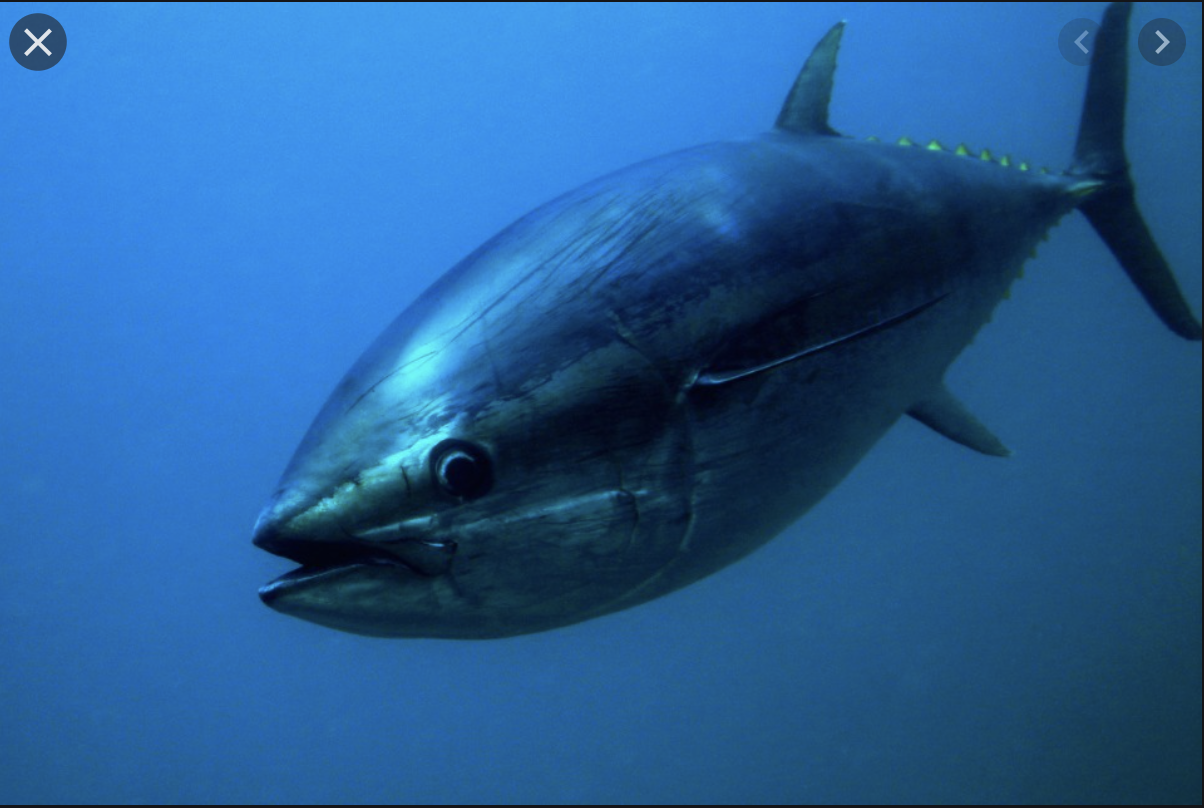
Bluefin tuna: government give go ahead…
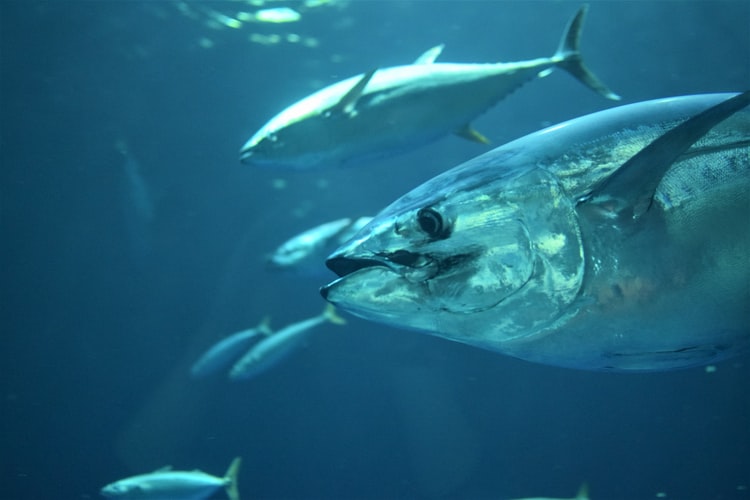
Anglers anger at Defra’s refusal to…
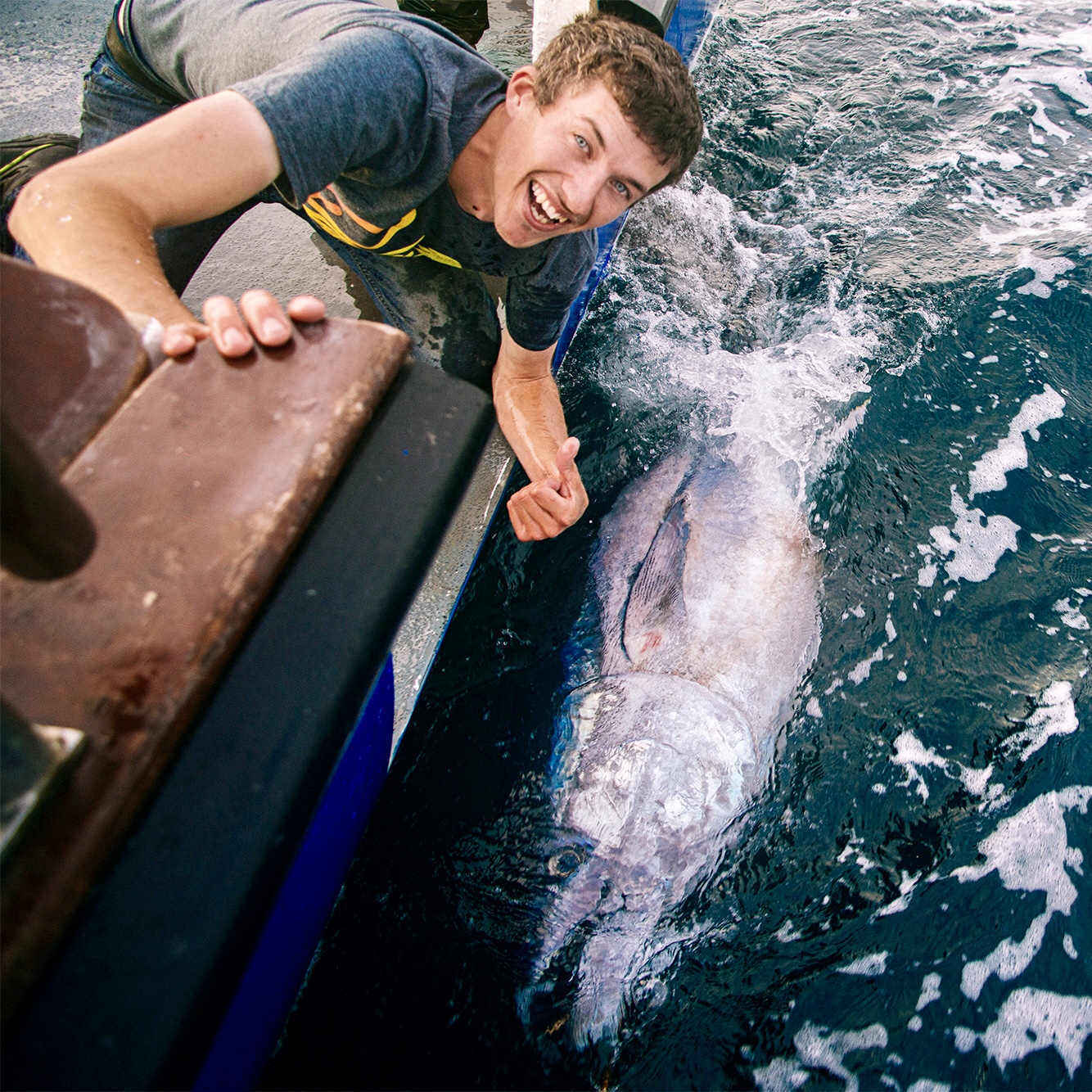
Atlantic Bluefin Tuna: A CHART for…
